Small scale, unsustainable
Besides the optimistic figures on economic growth rate and investment attraction, the private economic sector in Bac Ninh province is still mainly small and medium enterprises (SMEs), not commensurate with the scale and growth rate of the province in recent years. Of the total number of registered private enterprises, 95-97% are micro, small and medium enterprises, with total annual revenue from less than 3 billion VND to no more than 300 billion VND, depending on the field of operation. Individual business households are also concentrated in some areas such as wards in Bac Giang city, old Bac Ninh and in some communes and wards around industrial parks and clusters.
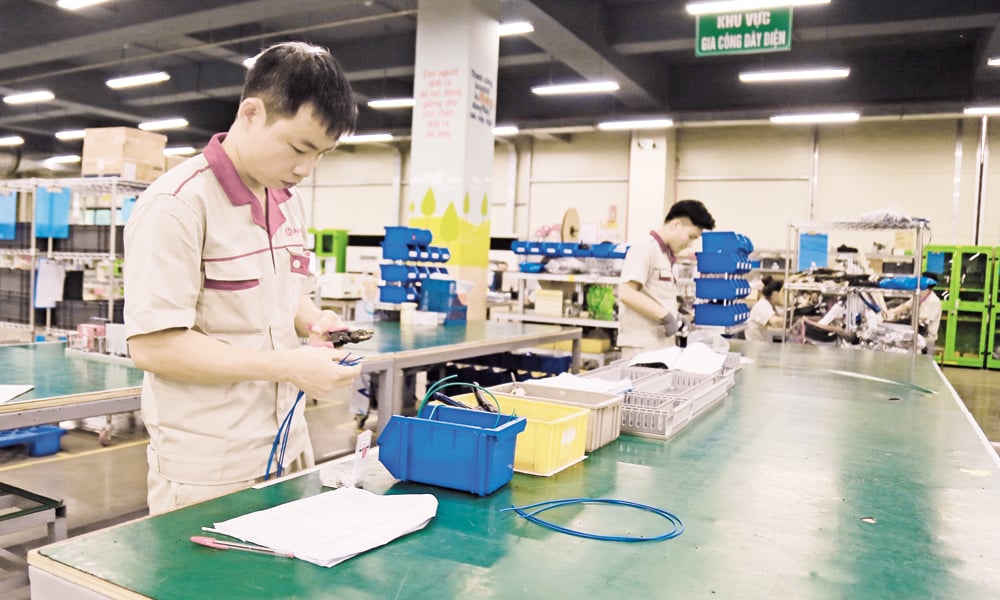 |
Performing operations in the production line at Autotech Vietnam Machinery Manufacturing Joint Stock Company (Vsip Industrial Park). |
According to Dr. Nguyen Phuong Bac, former Director of the Institute for Socio -Economic Development Research of Bac Ninh province, some businesses still operate on a family scale, lacking professionalism and transparency. Many businesses find it difficult to meet international standards to participate in the supply chain.
The resilience of many private enterprises in the province to market fluctuations and the new competitive environment is still weak. The number of dissolved and inactive enterprises is still high. From the beginning of 2025 to the end of August, the whole province had 734 dissolved enterprises and 2,597 cases of temporary suspension of operations, accounting for 69% of the total number of newly registered enterprises. Limited Liability Company X in Bac Giang ward specializes in organizing experiential education and tourism activities and was established in 2019 with a charter capital of 3 billion VND. In the beginning, the Company connected and built many programs to bring students from schools in the area to visit and participate in experiential activities at many locations inside and outside the province; at the same time, organizing for thousands of tourists to visit and experience fruit gardens in the old Luc Ngan district. However, when encountering the Covid-19 pandemic, mass gathering activities were restricted and financial resources were limited, so the Company encountered many difficulties and has now temporarily suspended operations.
Another weakness of the private economic sector in the province is that it is difficult to participate deeply in the supply chain of corporations and companies with foreign direct investment (FDI) although the number of FDI enterprises investing in the province is increasing, with many large corporations such as Samsung, Hong Hai, Canon, Foxconn, Goertek, Luxshare... The industrial production value of Bac Ninh ranks first in the country, the import-export value ranks second, but the industrial production value of private enterprises in the area accounts for less than 10% of the total industrial production value, especially in the high-tech sector.
Slow innovation of knowledge and management
There are many reasons why the province's private economic sector still has many limitations, not commensurate with the province's growth rate. First of all, many private business owners in the province started as "skilled workers", operating and managing based on experience without knowledge of management science. Initially, they participated in service activities, construction, production of goods to supply and serve small-scale households; after gaining prestige, they expanded the scale and scope of operations and established companies to meet new requirements. Many private business owners do not control their cash flow well, do not separate personal cash flow and company cash flow, leading to unreasonable and unbalanced spending.
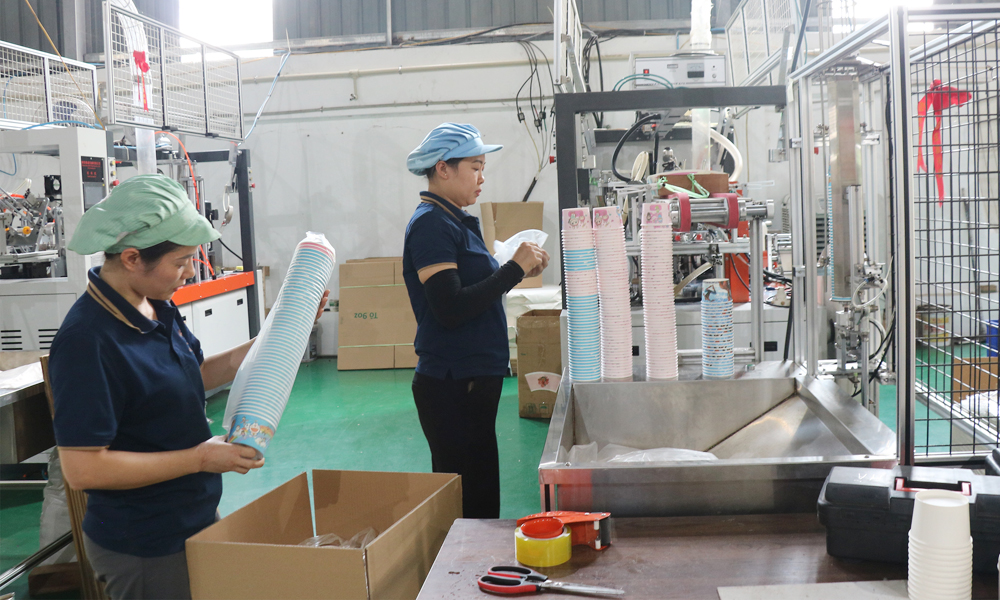 |
Production of paper cups and paper bowls at Viet Paper Cup Joint Stock Company, Tan Chi commune. |
CNC Production and Trading Limited Liability Company, Phuong Lieu Ward, specializes in manufacturing and supplying metal and plastic equipment for Samsung Group's vendor businesses. From a small business, in 2015, the company established a limited liability company, investing large capital to expand production. However, in recent years, the company has encountered many difficulties due to an unstable market and strict requirements from partners in terms of design and finished products. Mr. Tran Ngoc H, representative of the company, said: "Due to thin internal capital, in the process of reinvesting in building and expanding the factory, there is a lack of financial resources, and the company has to mortgage assets to borrow more than 40 billion VND from the bank. If the situation continues, the company will be forced to reduce production and cut staff."
Many private business owners and individual business households have not been proactive in updating new knowledge and management skills. This is most clearly demonstrated through training courses and classes organized by provincial agencies and functional units specifically for organizations and individuals in the private economic sector. For example, at the end of June and the beginning of July, the Bac Ninh Province No. 1 Investment Promotion and Enterprise Development Center organized a training course on applying artificial intelligence (AI) in business on digital platforms, lasting 2 days on Saturday and Sunday, costing 500,000 VND/person, with lecturers being experts from Viettel Academy. However, the class only had about 150 people registered to attend. Mr. Dong Anh Quan, Director of the Center shared: “Through the process of organizing and implementing training courses, we have found that many business leaders and business households are still quite hesitant to directly participate in learning and improving their knowledge. Usually, the participants are mainly department-level officers or professional staff. During the learning process, students are often less proactive in exchanging or asking questions so that experts can advise and answer practical issues related to their unit's operations. This somewhat reduces the expected effectiveness of the training courses.”
Difficulty in accessing land and production capital
Limited access to land is also a barrier and "bottleneck" for the development of private enterprises. The province's industrial and commercial land planning mostly prioritizes FDI enterprises or large-scale projects; private enterprises have difficulty accessing land funds that meet their needs. HTS Technology Joint Stock Company specializes in manufacturing all kinds of JIGs (jigs, plastic components, precision mechanical products, etc.) with an annual revenue of about 35 billion VND. Since its establishment (October 2020) up to now, this enterprise still has to set up headquarters and rent premises and factories from Bac Giang Plastic Joint Stock Company (in Da Mai ward) in the form of production cooperation. The company is contacting the owners of infrastructure of some industrial clusters in the province with favorable locations, but these units only lease areas of 10,000 m2 or more, so the company has to "give up".
 |
Bac Ninh Tax officials propagate and guide business households in Quang Trung street, Bac Giang ward about regulations related to the tax field. |
On the other hand, private enterprises and business households also face difficulties in capital and finance, mainly because these enterprises and business households do not have enough collateral and lack financial transparency, making it difficult to borrow capital from banks, especially medium and long-term capital. Meanwhile, the mechanism of capital mobilization through the stock market, investment funds or community capital calling models has not developed strongly in Bac Ninh. Mr. Nguyen Dinh Hoa, in charge of factory management of Cau Sen Joint Stock Company, Luc Nam commune, said: “Our company specializes in garment production. In April 2025, the company rented the premises from another enterprise and invested in building 2 new factories, attracting 400 workers to participate. Currently, the company continues to build 2 more factories, expected to be put into use by November this year, with an estimated total construction cost of nearly 150 billion VND. However, when applying for a loan from the bank, we only met 50-70% of the actual demand because the valuation of mortgaged assets is based on existing machinery and equipment, while businesses often purchase machinery in batches because the factories are not yet completed.”
Another reason is that most private enterprises have not kept up with the trend of innovation in science, technology, and e-commerce. According to Mr. Nguyen Manh Hung, Director of Vinh Giang Investment and Trade Joint Stock Company (Que Vo Industrial Park Expansion): The biggest difficulty that the Company as well as other private distribution enterprises are facing is the pressure of competition with large e-commerce platforms and modern distribution systems. These platforms have advantages in technology and the ability to access large markets, while local enterprises are limited in technological capacity. In addition, logistics and transportation costs are increasing, creating great pressure on enterprises. The shortage of highly skilled labor in the fields of supply chain management, data analysis and digital marketing is also a big challenge for the development of enterprises.
Reality shows that the private economy is a great driving force and a resource for the locality. Recognizing and correctly evaluating the role of private enterprises will create conditions and motivation for the private economic sector to develop more strongly. Bac Ninh needs to have specific mechanisms and policies to concretize Resolution 68 on private economic development in accordance with the local situation. Each enterprise and individual business household also needs to be more proactive and dynamic in updating their knowledge, skills, and business management level to keep up with the trends of the new era.
(continued)
Source: https://baobacninhtv.vn/de-kinh-te-tu-nhan-thuc-su-thay-doi-ca-luong-va-chat-bai-2-con-do-nhung-kho-khan-bat-cap-postid426514.bbg


![[Photo] National Assembly Chairman Tran Thanh Man chairs the 8th Conference of full-time National Assembly deputies](https://vphoto.vietnam.vn/thumb/1200x675/vietnam/resource/IMAGE/2025/9/29/2c21459bc38d44ffaacd679ab9a0477c)
![[Photo] General Secretary To Lam attends the ceremony to celebrate the 80th anniversary of the post and telecommunications sector and the 66th anniversary of the science and technology sector.](https://vphoto.vietnam.vn/thumb/1200x675/vietnam/resource/IMAGE/2025/9/29/8e86b39b8fe44121a2b14a031f4cef46)
![[Photo] General Secretary To Lam chairs the meeting of the Central Steering Committee on preventing and combating corruption, waste and negativity](https://vphoto.vietnam.vn/thumb/1200x675/vietnam/resource/IMAGE/2025/9/29/fb2a8712315d4213a16322588c57b975)
![[Photo] Many streets in Hanoi were flooded due to the effects of storm Bualoi](https://vphoto.vietnam.vn/thumb/1200x675/vietnam/resource/IMAGE/2025/9/29/18b658aa0fa2495c927ade4bbe0096df)
![[Photo] General Secretary To Lam receives US Ambassador to Vietnam Marc Knapper](https://vphoto.vietnam.vn/thumb/1200x675/vietnam/resource/IMAGE/2025/9/29/c8fd0761aa184da7814aee57d87c49b3)

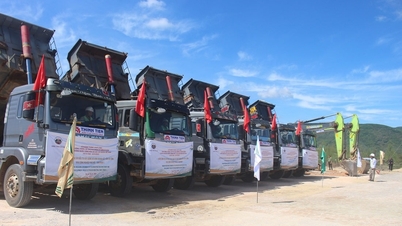







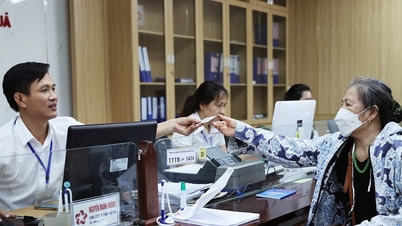

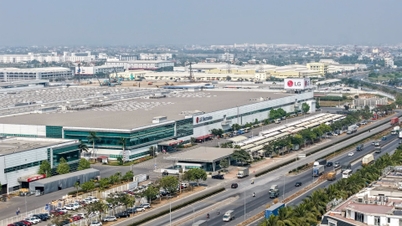




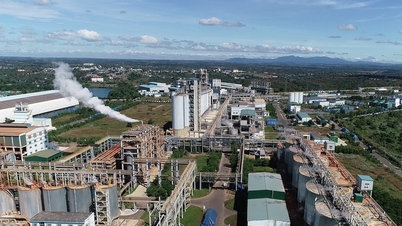

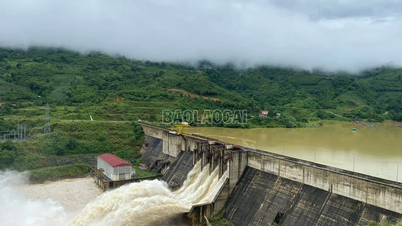































































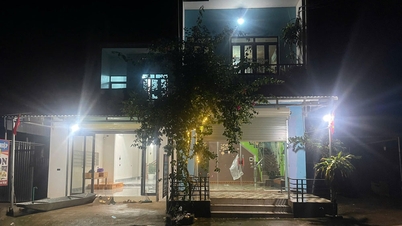



![[Infographics] An Giang tourism makes a spectacular breakthrough](https://vphoto.vietnam.vn/thumb/402x226/vietnam/resource/IMAGE/2025/9/30/e472f9f3f91d407ba4b7de460fb0481d)












Comment (0)